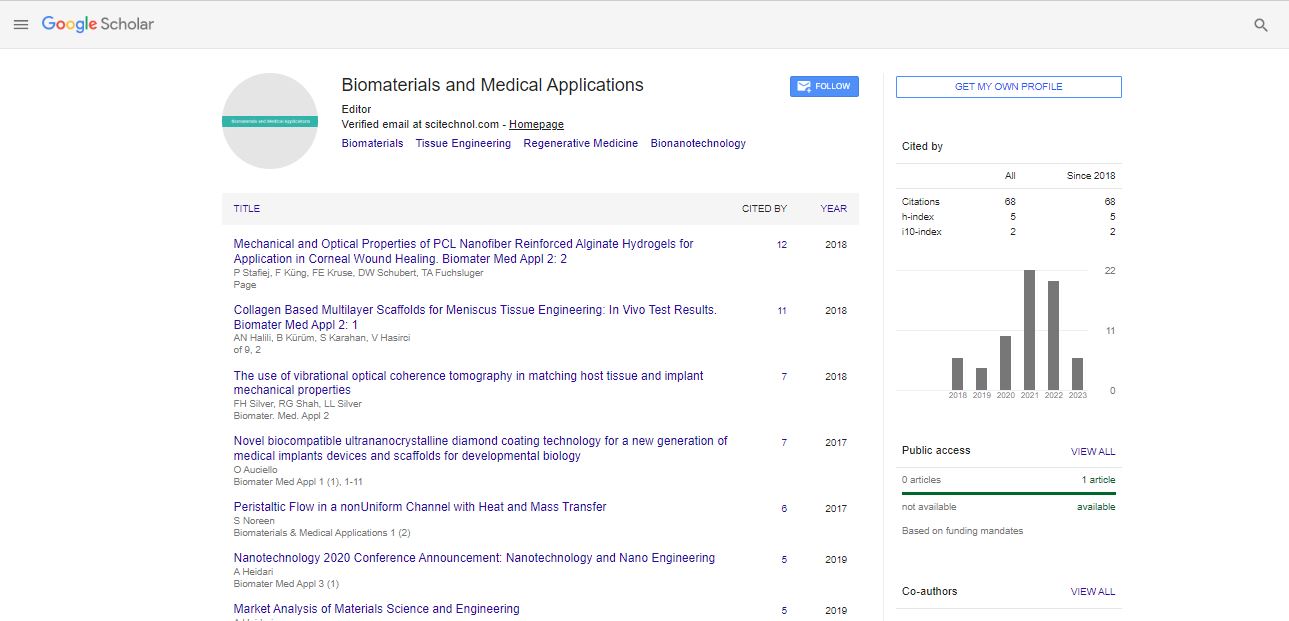Selective laser sintering of PMMA and PMMA plus -tricalcium phosphate polymer composites
Rajkumar Velu and Sarat Singamneni
Singapore University of Technology and Design, Singapore
Auckland University of Technology and Design, New Zealand
: Biomater Med Appl
Abstract
Rapid prototyping technologies took long strides in the recent past and gradually evolved into the additive manufacturing solutions. Both process and material enhancements, and, the invention of new material alternatives have taken the centre-stage during these developments. The research addressed the science questions arising when establishing a new material for one of the additive manufacturing processes. Polymer composites based on PMMA are the candidate materials, while selective laser sintering is the specific additive processing method selected for the research. Simulating the laser sintering process conditions required the development of both hardware and software systems and the integration of the same to achieve the overall experimental test bed. Powder feeding, and envelope temperature control systems are added for further process controls. Establishing the viability of the material and process combination involved experimental evaluations in three significant stages. The neat PMMA powders are evaluated first for laser sintering with varying process parameters. Working ranges of laser energy densities for initial laser sintering experiments are established by differential scanning calorimetric results. Further sintering trials and evaluation of the morphological, physical and mechanical characterization results allowed to establish the best process conditions and the overall effectiveness of neat PMMA for selective laser sintering. The same procedure is repeated in the second stage based on varying compositions of PMMA plus β-TCP composites. The final stage involved evaluation of the possible aftereffects if any on the biological and the multi-layer responses of the sintered polymer composites based on Fourier transform infrared spectroscopy (FTIR), in-vitro analyses, and mechanical testing.
Biography
Rajkumar Velu has completed his PhD at the age of 29 years from Auckland University of Technology, New Zealand and Postdoctoral Studies from Digital Manufacturing and Design center, Singapore University of Technology and Design, Singapore. He has published more than 15 papers in reputed journals and recipient of Best outgoing student award 2008, Best all-rounder award 2011, Scientific research award 2010, Doctoral scholarship award 2012 and Postdoctoral Fellowship 2017. He published a book and book chapters. His current research involves the development of Design and robotic fabrication of 3D composites for structural applications based medical and aerospace structures.
E-mail: rajkumarvelu@sutd.edu.sg
 Spanish
Spanish  Chinese
Chinese  Russian
Russian  German
German  French
French  Japanese
Japanese  Portuguese
Portuguese  Hindi
Hindi 